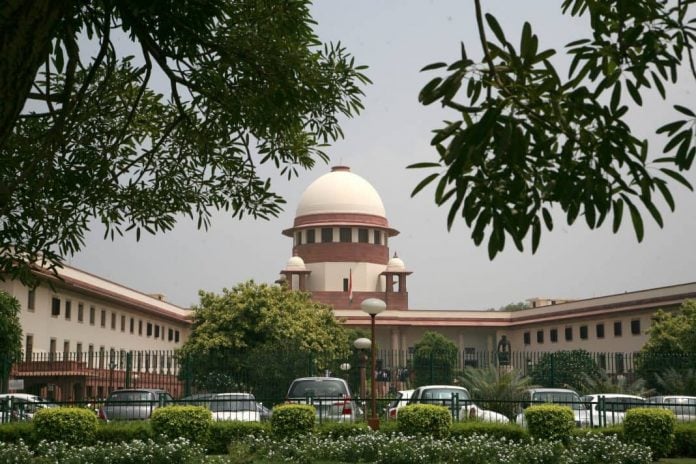New Delhi (ILNS): The Supreme Court of India will be hearing a Public Interest Litigation filed by advocate Ashwini Kumar Upadhyay seeking directions to debar the persons from contesting election against whom charges have been framed in serious offences.
The plea alleges that the
“criminals who earlier used to help politicians win elections in the hope of getting favors, appear to have cut out the middle-man in favor of entering politics themselves and political parties in turn have become steadily more reliant on criminals as candidates “self-finance” their own elections in an era, where election contests have become phenomenally expensive, but also because candidates with criminal antecedents are more likely to win than clean candidates. Political parties are competing with each other in a race to the bottom because they cannot afford to leave their competitors free to recruit criminals.”
Mr. Upadhyay alternatively seeks directions to the Election Commission of India to use its plenary power conferred under Article 324 to Election Symbols (Reservation & Allotment) Order ,1968 , to insert additional conditions for recognition and continuous as a State or National Party, in order to debar the person from contesting election against whom charges have been framed in serious offences.

The petition further stated that “The objections may be that (a) it would violate presumption of innocence and that the class of affected persons would include persons against whom false or frivolous cases have been filed; and (b) this Hon’ble Court cannot do indirectly what it may not do directly. The contention based on presumption of innocence is without merit. The presumption of innocence is defined as “the fundamental principle that a person may not be convicted of a crime unless the government proves guilt beyond a reasonable doubt, without any burden placed on the accused to prove innocence.” [Black’s Law Dictionary, 10th Ed. (2014), p. 1378.] In fact, the proposed direction does not operate in the field of criminal law at all insofar as it only imposes an additional condition on a political party that it may not set up a candidate with criminal antecedents and failure to abide by the condition will only impact its ability to retain its reserved symbol.”
The petitioner adding to the contention referred to the Judgement in case of Prabhakaran, (para 55) this Hon’ble Court held that
“ …contesting an election is a statutory right and qualifications and disqualifications for holding the office can be statutorily prescribed. A provision for disqualification cannot be termed a penal provision and certainly cannot be equated with a penal provision contained in a criminal law…”
Whereas, the petitioner clarifying his contention stated that the ”proposed direction doesn’t impinge upon presumption of innocence, on the following grounds:
Read Also: Delhi court declares Nitin Jayantilal Sandesara, 3 others as fugitive economic offenders
- 1. the proposed direction does not have effect of convicting the candidate or subjecting him to imprisonment.
- 2. it does not impose a serious disability on the candidate to the extent that he can always stand as an independent. The alleged deprivation of having to make do without party financing is not empirically well founded. As noted above, persons with criminal antecedents are chosen by political parties in large part because they can pump large amounts of illegal funds into their elections.
- 3. the proposed direction would operate even against an innocent candidate only for a short period of time until his trial is over.
-ILNS


